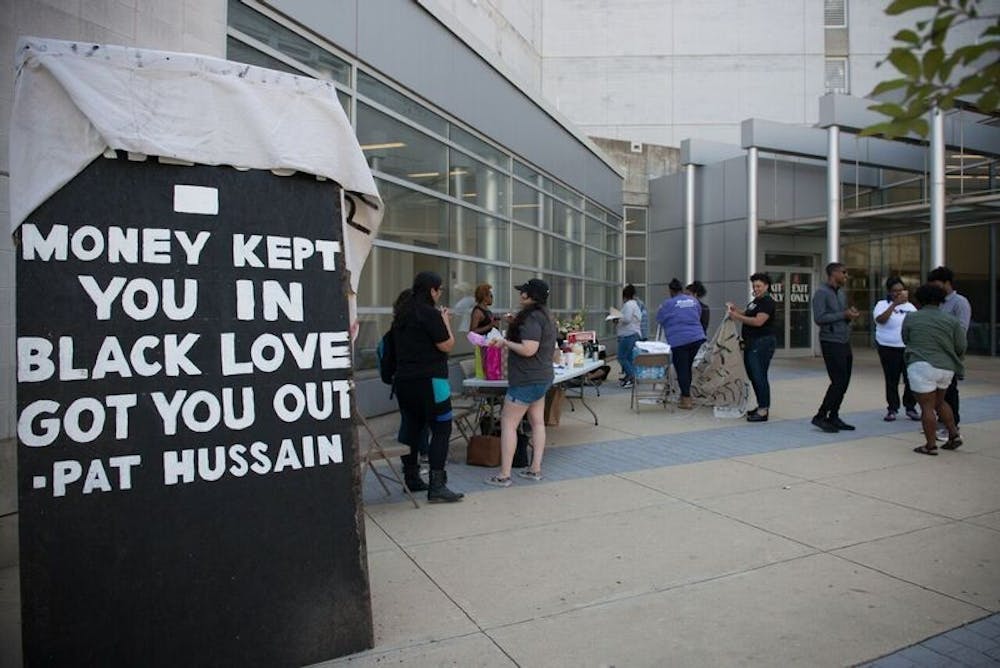One day each year, the Durham County Detention Facility – a beige-gray structure that looms over DPAC on S. Mangum Street – is flooded with music and chanting, smiles and hugs.
On that day, at around 9 or 10 a.m., someone walks into the jail and drops off tens of thousands of dollars. Then, one by one, women and gender-nonconforming people walk out of the building, free from detainment and from the burden of paying their bail.
Facilitated by the Southerners on New Ground Durham, Black Youth Project 100 Durham and the Center for Resilient Individuals, Families and Communities in conjunction with the National Bail Out collective, the Black Mama's Bail Out Action is an annual event designed to bail Black mothers and caregivers out of jail. SONG Durham has raised over $60,000 to fund this year’s Bail Out, which takes place on Thursday.
The newly released caregivers are greeted with flowers, gift bags and beverages. Then they’re asked if they need a ride to wherever they’re headed next. If they need further assistance, they’re connected with a case manager.
Durham resident Kyla Hartsfield, a Black queer community organizer with both SONG and BYP 100, said members normally invite friends and family to the Bail Out.
But to promote safety amid COVID-19, only a small team will participate in person this year. There will be no hugs.
“Even though we can't physically touch each other, the spirit of freedom definitely will take over,” Hartsfield said. “I feel like it takes over the whole jail because a lot of times we chant, and folks inside can hear us.”
People sitting in jail aren’t necessarily there because they have committed a crime, Hartsfield said. Rather, they have been accused and may not have the resources to bail themselves out. With the pandemic still rampant in North Carolina, these detainees are susceptible to COVID-19, she said. Hartsfield cited a quote she’s seen: “You can’t social distance in a jail.”
Jessica Smith, a professor at the UNC School of Government and director of the School’s Criminal Justice Innovation Lab, said jails were already overcrowded prior to the pandemic. One criticism of the bail system, she said, is that it allows wealthy but dangerous people to buy their way out of jail, while it keeps nonviolent but poor people incarcerated.




